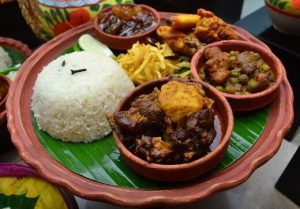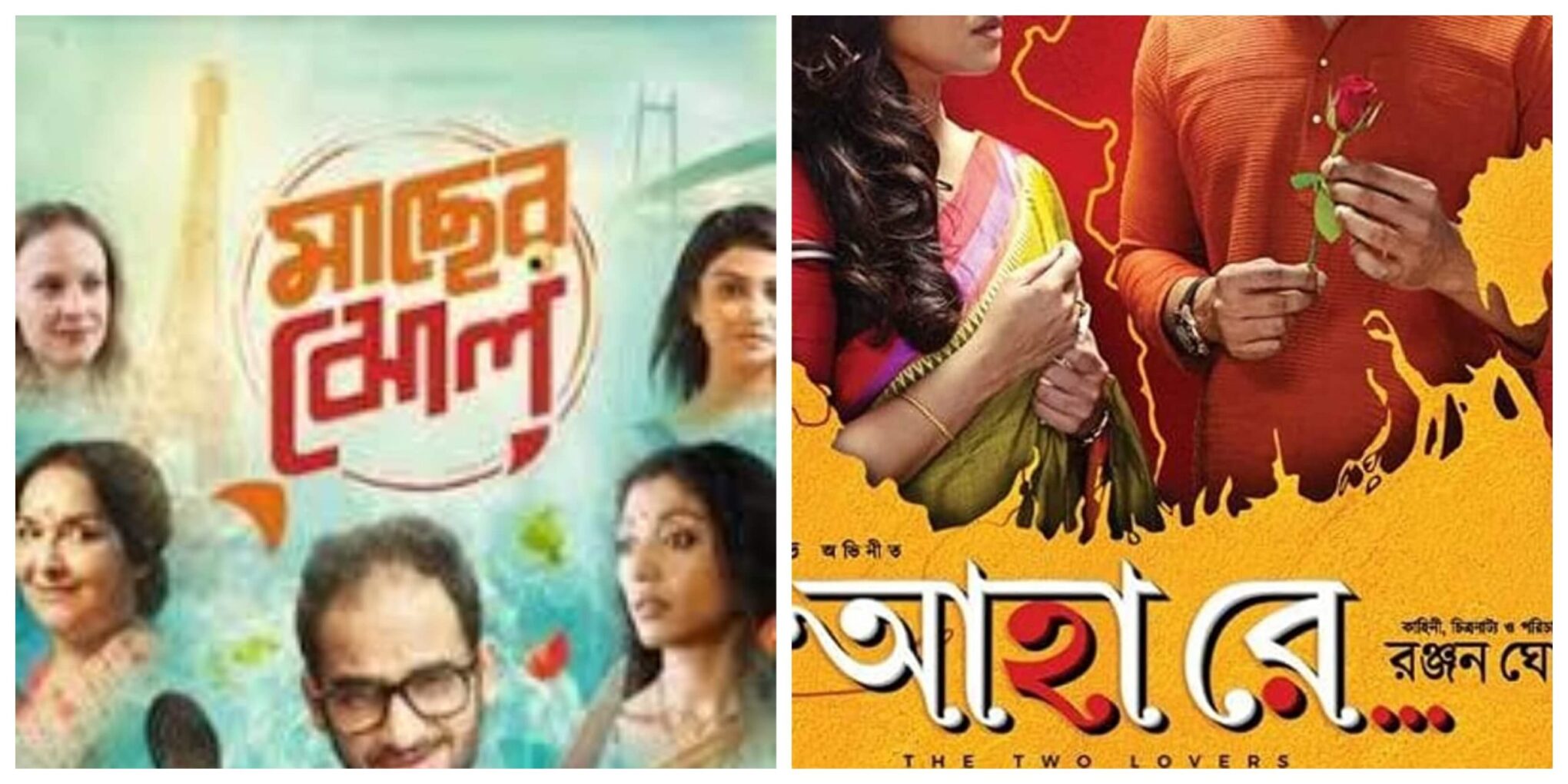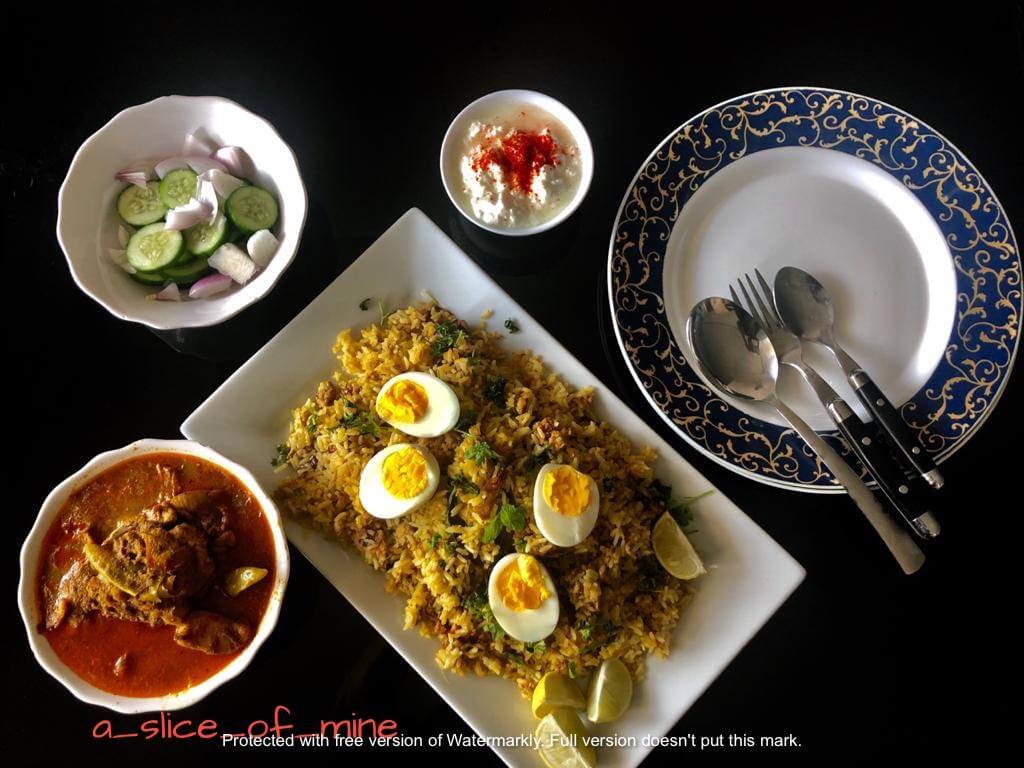Ruchira reviews two food-centric Bengali films, Maacher Jhol (2017) and Aha Re (2019). An exclusive for Different Truths.
Talking of movies, Mumbai’s tinsel town (aka Bollywood) and the Hindi films churned out there have greatly impacted each and every nook and cranny of our country since Hindi is the lingua franca of our teeming millions.
Movies are the most popular, easily accessible and cheapest source of mass entertainment. The genres and the immense variety is mind-boggling indeed. One is free to pick and choose from religious/devotion, (they don’t make these any longer but a few still exist) historical and period pieces, sci-fi, action horror, cartoon films, romance, comedy, tear-jerkers and potboilers, and what have you. Talking of movies, Mumbai’s tinsel town (aka Bollywood) and the Hindi films churned out there have greatly impacted each and every nook and cranny of our country since Hindi is the lingua franca of our teeming millions.
So deep is the influence that most flicks be it Bengali, Tamil, Telugu or Malayalam portray near-identical storylines: boy-meets-girl, rich vs. poor, love blooms, running around trees, song and dance sequence at the drop of a hat, boy get into a fracas with hoodlums, girl gets manhandled, finally, the police arrive, girl- boy tie the knot, live happily ever after. The plots are inextricably interwoven with oodles of sex, sleaze and extravagant display of wealth. Little wonder, therefore, that down-to-earth films by stalwarts like Ray, Sen and Ghatak find few takers, save the intelligentsia and movie connoisseurs. Reality-based films are passé, as are “new wave” ones which too are reality-based
In such a social milieu, food-centric films are making their debut. Not in the mainstream but regional, Bengali to be precise. Pratim D Gupta’s 2017 flick Maacher Jhol ushers in a whiff of fresh air in the otherwise cloistered atmosphere.
In such a social milieu, food-centric films are making their debut. Not in the mainstream but regional, Bengali to be precise. Pratim D Gupta’s 2017 flick Maacher Jhol ushers in a whiff of fresh air in the otherwise cloistered atmosphere. Dev (Ritwik Chakrabarty) rushes to his native Kolkata after a gap of thirteen years, to attend to his ailing mother, in the process placing his career as well as his live-in girlfriend on the backburner. The reunion between mother and son is heart touching indeed; their deep mutual bond and affection are palpable throughout. From her hospital bed, Dev’s mother ((Mamata Shankar) throws him a challenge: she asks him to cook a particular type of Maacher jhol (light fish curry), which he  had last prepared as a teenager. From here the movie focuses on a single theme: the youth’s yearning to fulfil his mother’s longing. And Dev goes all out to arrange for the preparation of the dish.
had last prepared as a teenager. From here the movie focuses on a single theme: the youth’s yearning to fulfil his mother’s longing. And Dev goes all out to arrange for the preparation of the dish.
Food, as we all know, is almost always interspersed with memories of incidents, places folks and whirl of emotions. The aroma, a dash of colour or taste can trigger off powerful memories. In this film a simple dish becomes the warp and woof of memories. The scenes shuttle back and forth –between Kolkata and Paris, juxtaposing Dev’s life and struggle in a north Kolkata locality, with his present luxurious lifestyle as a successful Paris restaurateur. Nostalgia is writ large, all over the film. It is heartening to see that finally, Dev succeeds in cooking and serving the dish his mother was craving for. A bowl of nondescript Maacher Jhol thus assumes a metaphoric quality depicting filial duty and commitment.
A later film (2019) titled, Aha Re celebrates food and culinary arts. It drives home the point that passion for food helps transcend social, political, and international barriers. A lot can happen over food. Even hearts unite in love.
A later film (2019) titled, Aha Re (literally: A sympathetic exclamation. Also a pun on Ahar = food) celebrates food and culinary arts. It drives home the point that passion for food helps transcend social, political, and international barriers. A lot can happen over food. Even hearts unite in love. The storyline is interesting. A Dhaka-based super chef Farhaz (played by RJ-turned-actor Arifin Shubho) arrives in Kolkata for a stint in a five-star hotel. In the alien city, he accosts Basundhara (played by Rituparna Sengupta) a young widow who runs a home delivery service in her neighbourhood. Her wholehearted devotion to cooking helps to alleviate her personal sorrow, loss and pain. The two of them interact (a subtle undercurrent of antagonism notwithstanding), exchange notes and experiment with cooking styles. The perennial differences in gastronomy which continue to plague the ghoti (natives of West Bengal) and bangal (Bangladeshis) even to this day are mirrored in the film albeit in a subtle way.
Focus is also on Ilish/Hilsa and Chingri/ prawns, the dual crowning glory of authentic Bengali cuisine. We also get to know about the origin and evolution of some popular traditional dishes. The ending of the film is a trifle melodramatic. Farhaz prepares to leave for his homeland; but on his way to the airport, he undergoes a change of heart, realises what Bashundhara means to him and decides to return to her. Summing up, for those of you who love cooking and eating all kind of food (Bengali food included) and Bangaliyana (cultural ethos) the film is a must-see!
Photo from the Internet






 By
By

